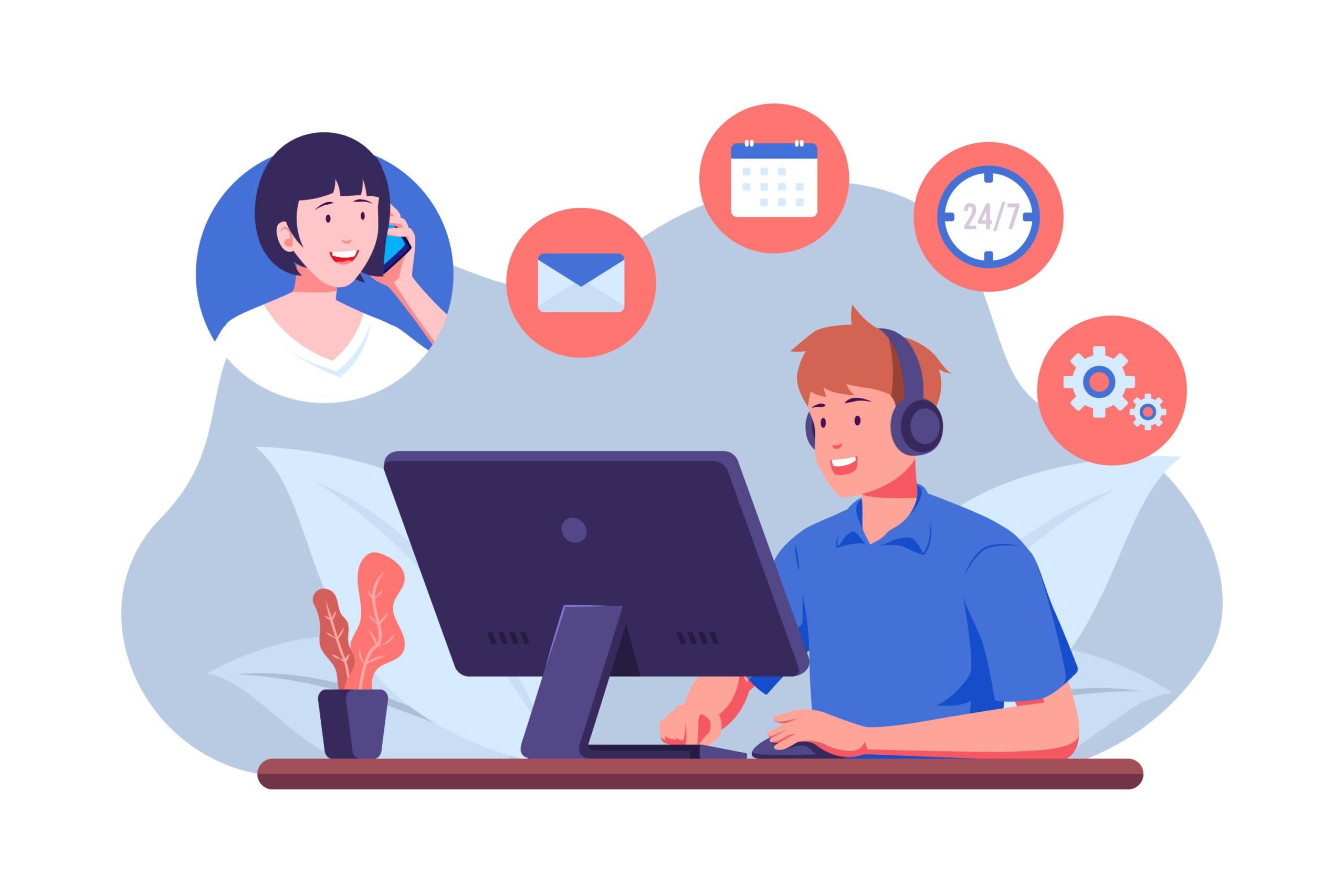In the fast-paced world of customer service, technology has emerged as a game-changer, revolutionizing the way businesses interact with their customers. As we explore the role of technology in modern customer service, we’ll delve into how businesses can leverage cutting-edge tools and concepts from the Level 3 Diploma in Customer Service to enhance customer interactions and satisfaction.
The Evolution of Customer Service
Gone are the days of long waits on hold and tedious in-person inquiries. Technology has ushered in an era where instant communication, automation, and data-driven insights shape customer service strategies. The Level 3 Diploma in Customer Service recognizes the importance of staying abreast of technological advancements to provide efficient and effective service. Let’s explore how businesses can harness technology to transform their customer interactions.
1. Automated Customer Support Systems
The Level 3 Diploma emphasizes the significance of streamlining customer interactions, and automated customer support systems play a pivotal role in achieving this. Chatbots, for example, powered by artificial intelligence (AI), can provide instant responses to frequently asked questions, resolve common issues, and guide customers through processes. This not only reduces response times but also frees up human agents to tackle more complex queries.
2. CRM Systems for Personalized Interactions
Customer Relationship Management (CRM) systems, a focal point in the Level 3 Diploma Customer Service, enable businesses to create personalized interactions by gathering and analyzing customer data. These systems track customer preferences, purchase history, and interactions, allowing businesses to tailor their services to individual needs. By understanding customers on a deeper level, businesses can offer more relevant solutions and build long-lasting relationships.
3. Omni-Channel Communication
The Level 3 Diploma Customer Service underscores the importance of effective communication, and technology has facilitated seamless, omni-channel communication. Businesses can integrate various communication channels—such as phone, email, chat, and social media—into a unified platform. This ensures that customers can reach out through their preferred channel, and agents have access to a consolidated view of interactions, improving response accuracy and efficiency.
4. Data Analytics for Continuous Improvement
Continuous improvement is a core concept in the Level 3 Diploma Customer Service, and data analytics tools contribute significantly to this endeavor. Businesses can leverage customer data to identify trends, anticipate needs, and enhance service delivery. By analyzing customer feedback, businesses can pinpoint areas for improvement and adjust their strategies to better align with customer expectations.
Leveraging Technology: Strategies for Success
1. Real-Time Customer Support
Emphasized in the Level 3 Diploma Customer Service, real-time customer support is made possible through technology. Businesses can utilize live chat, instant messaging, and AI-powered chatbots to provide immediate assistance. This not only enhances customer satisfaction but also demonstrates a commitment to responsiveness—a key element of excellent customer service.
2. Proactive Issue Resolution
The Level 3 Diploma stresses the importance of proactive customer service. With technology, businesses can implement monitoring tools to identify potential issues before they escalate. For example, tracking social media mentions or analyzing patterns in customer inquiries can help businesses address concerns swiftly, showcasing a proactive approach to problem-solving.
3. Personalized Recommendations
Personalization, a concept championed by the Level 3 Diploma, is elevated through technology. Businesses can use algorithms and AI to analyze customer preferences and behaviors, providing tailored product recommendations. This not only enhances the customer experience but also boosts sales by presenting customers with offerings aligned with their interests.
4. Mobile Accessibility
Mobile accessibility is highlighted in the Level 3 Diploma Customer Service, recognizing the prevalence of smartphones in today’s society. Businesses can optimize their websites and customer service platforms for mobile use, ensuring that customers can easily access information and support on the go. Mobile apps and responsive design contribute to a seamless and accessible customer experience.
Challenges and Ethical Considerations
While technology presents immense opportunities, businesses must also navigate challenges and ethical considerations. The Level 3 Diploma Customer Service encourages businesses to uphold ethical standards in customer service. This includes transparent data usage, protecting customer privacy, and ensuring that technology does not compromise the human touch essential in customer interactions.
Conclusion
In conclusion, the Level 3 Diploma in Customer Service aligns seamlessly with the transformative role of technology in modern customer interactions. By leveraging automated systems, CRM platforms, omni-channel communication, and data analytics, businesses can not only meet but exceed customer expectations. Embracing technology is not just a trend; it’s a strategic imperative for businesses aiming to deliver exceptional customer service in the digital age. As businesses integrate technology with the principles outlined in the Level 3 Diploma, they set the stage for a customer-centric future where efficiency, personalization, and continuous improvement reign supreme.

